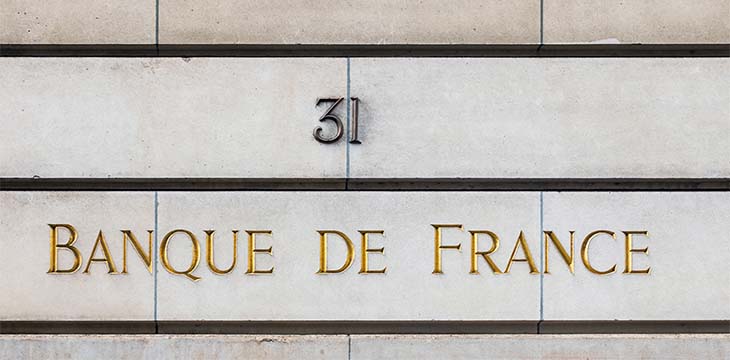|
Getting your Trinity Audio player ready...
|
Banque de France has hinted that it will be paying significant attention to developing a central bank digital currency (CBDC). In particular, Villeroy de Galhau, the bank’s Governor, disclosed that it would be exploring the benefits of a wholesale CBDC.
“A wholesale CBDC could significantly contribute to improving cross-border and cross-country payments,” Galhau said at a conference on the direction of a potential CBDC. The head of the banking regulator added that retail CBDCs have snagged all the attention from wholesale versions but claim that both offer immense economic benefits.
Wholesale CBDCs refer to the settlement of interbank transfers, and its advocates claim that it could improve payments and securities settlement efficiency and reduce liquidity risks and counterparty credit. On the other hand, retail CBDCs are typically issued to the general public, on distributed ledger technology, and may offer interest rates to users.
Apart from considering the benefits of wholesale CBDCs, Galhau notes that the central bank is looking to improve CBDCs’ liquidity management in decentralized finance (DeFi) using automated market makers (AMM). He adds that this would see it play the role equivalent to investment banks, sustaining the trade of a security.
The governor also revealed a project that focuses on issuing and distributing tokenized bonds on a blockchain following the development of Project Jura, a recently completed CBDC pilot by the French and Swiss central banks in collaboration with the Bank of International Settlements (BIS) Innovation Hub.
Following the lead of the European Central Bank
France’s attempts at developing CBDCs are hinged on the efforts of the European Central Bank (ECB). The regional bank is currently carrying out a public inquiry to determine the feasibility of digitizing the euro, with experts considering 2026 as a potential launch date.
There are several speculations over what the digital euro might look like upon launch, but the information remains sparse at the time of writing. However, Christine Lagarde, head of the ECB, has stated the digital euro will not be designed to replace cash; rather, it will be designed to complement it.
The CBDC will be released on two fronts—both wholesale and retail with the ECB noting that privacy and energy usage will be given top priority.
“We will also strive for the highest standards of privacy and aim to contribute to financial inclusion and foster digital innovation, including as regards the programmability of payments,” said Fabio Panetta, Member of the Executive Board of the ECB.
“As for implementation, we are working to minimize the time to market, costs, risks, and ecological footprint associated with the digital euro,” he added.
To learn more about central bank digital currencies and some of the design decisions that need to be considered when creating and launching it, read nChain’s CBDC playbook.
Watch: The BSV Global Blockchain Convention presentation, CBDCs and BSV

 02-18-2026
02-18-2026 




